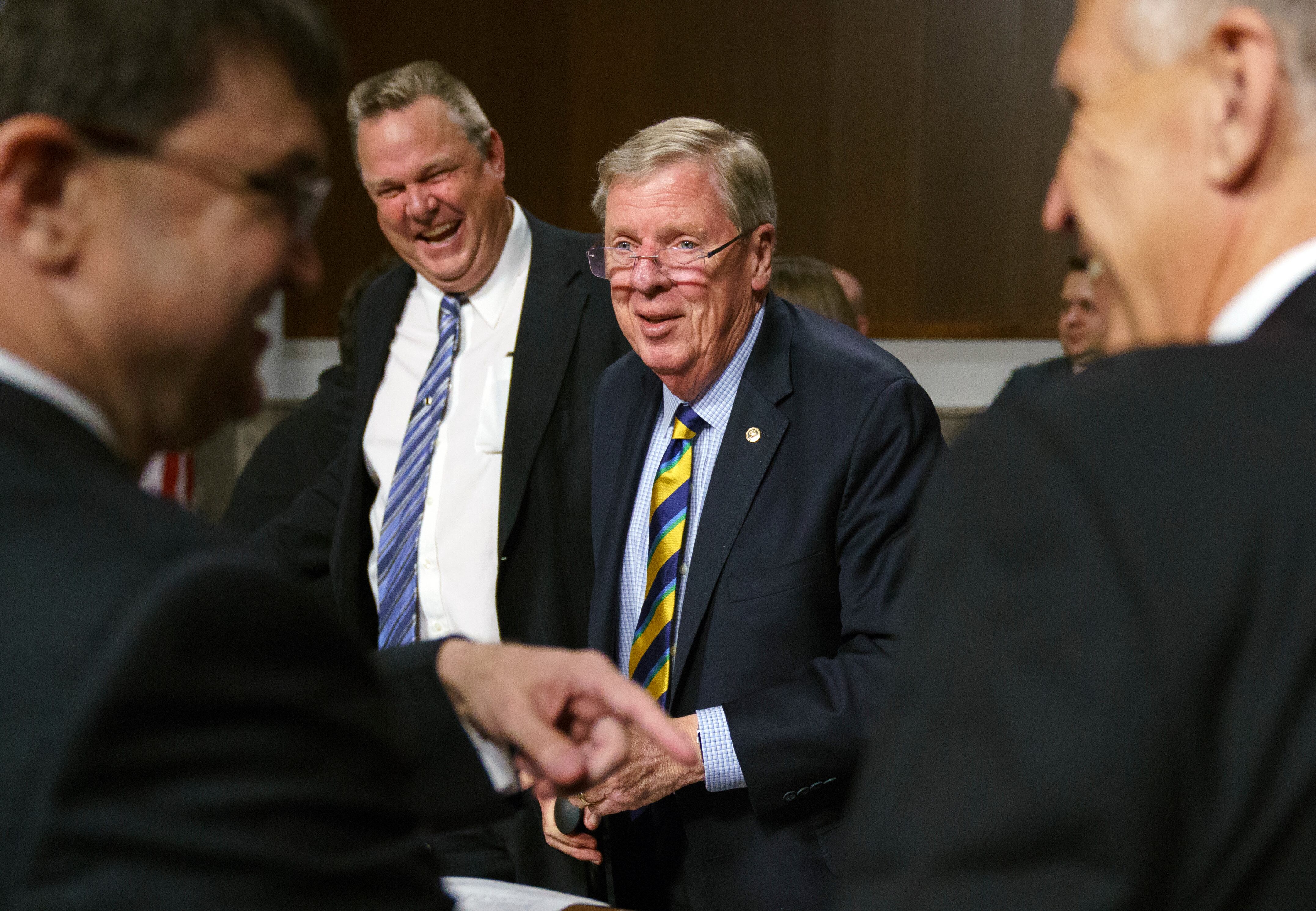WASHINGTON — Veterans Affairs officials issued a formal announcement this week that they are “providing a new and unprecedented level of transparency to lawmakers in Congress.”
Democratic lawmakers are asking if that’s the case, why are they still struggling to get answers on a host of department policy issues.
VA officials and congressional critics have been locked in an escalating fight this week over whether VA leadership has been forthcoming on series of recent requests, with an emphasis on the new community care rules which could dramatically expand the number of veterans receiving taxpayer-funded health care from private-sector doctors.
RELATED

The showdown calls into question whether Congress and VA can continue to see the same type of legislative success they’ve enjoyed in recent years, with numerous high-profile bills passed into law and brought into regular rotation in President Donald Trump’s stump speeches.
It also comes as Congress evaluates whether it needs to intervene on the new proposed community care rules, already a controversial conflict point in the larger debate over whether the administration is outsourcing too many responsibilities and too much money in their quest to make VA health care more flexible.
Lawmakers, including Senate Veterans’ Affairs Committee ranking member Jon Tester, D-Mont., have said their requests for detailed information on the sweeping health care rule changes have been ignored. Congressional staff was briefed on the issue as it was being publicly released for the first time, and lawmakers from both parties said they felt the had limited input while the rules were being drafted.
“Once again, VA has followed its no well-established pattern of lack of transparency with Congress with its failure to engage in dialogue about its plans with regard to the new Veterans Community Care Program,” Tester wrote in a letter to VA Secretary Robert Wilkie this week that was co-signed by 11 other Democratic senators.
“Given the lack of fundamental information VA is currently able to provide on the proposed standards and what we know about the quality and access to care the department is able to provide, we believe there is reason for alarm.”
RELATED

The letter lists more than 50 unanswered questions on VA funding, staffing, patient use projections.
It followed a letter just days earlier from Tester, House Veterans’ Affairs Committee Chairman Mark Takano, D-Calif., and their Republican counterparts lamenting that staff briefings from VA have been “somewhat limited in scope and details” since Wilkie took office last year, and reminding the department of Congress’ oversight role.
VA leadership has pushed back, saying that they dramatically increased their response to congressional inquiries from fiscal 2017 to fiscal 2018.
In a statement, Wilkie said that VA is “setting new standards” for cooperation with Congress and releasing information to the public.
“Under President Trump’s leadership, the department is now the first hospital system in the nation to post online its hospital wait times, opioid prescription rates, accountability and settlement info, and chief executive travel,” he said.
“All the while, we are keeping lawmakers informed through multiple means regarding the great reforms and progress across the department, and we will continue to do so.”
VA officials reiterated that message on Capitol Hill later in the week during a Senate Appropriations Committee hearing on electronic medical records. But several senators — both Democrats and Republicans — expressed concerns that answers to specific questions have been difficult to obtain.
Among them have been ongoing concerns about the influence of a trio of businessmen — Marvel Entertainment CEO Ike Perlmutter, primary care specialist Dr. Bruce Moskowitz, and attorney Marc Sherman — who have been linked to key policy discussions within VA, despite having no formal role in the administration.
On Thursday, after months of similar requests about their role to VA, Sen. Elizabeth Warren, D-Mass., released a letter she sent directly to the three men requesting clarification on their role in VA planning, including whether they “may have had the opportunity to profit from your arrangement.”
The VA statement on transparency criticized past administrations for “not providing enough information to the legislative branch” but said that has changed for the better since Trump took office.
Tester disagreed, saying he saw more effort in outreach to Congress in the past, both during Republican and Democratic control of the White House.
‘This is not a political thing,” he said. “Communication is critical … The secretary has done some really good work, but I don’t believe it is where it needs to be.”
He said he had not yet seen the VA press release on transparency.
“I appreciate the fact that they responded,” Tester said. “It would be nice if they picked up the phone instead of doing it through (the press). “
Leo covers Congress, Veterans Affairs and the White House for Military Times. He has covered Washington, D.C. since 2004, focusing on military personnel and veterans policies. His work has earned numerous honors, including a 2009 Polk award, a 2010 National Headliner Award, the IAVA Leadership in Journalism award and the VFW News Media award.





